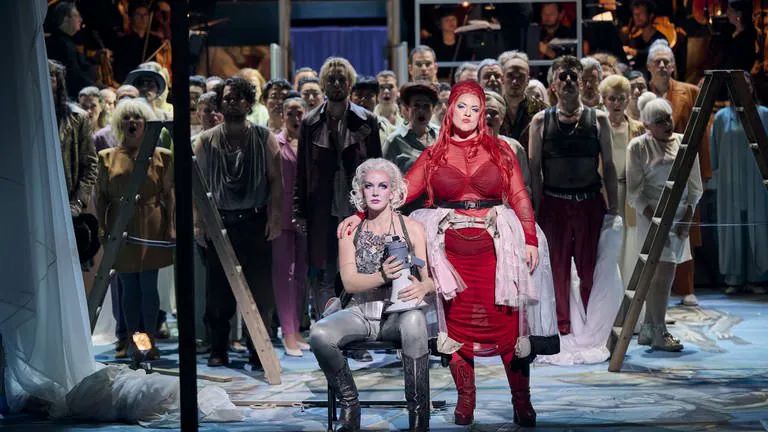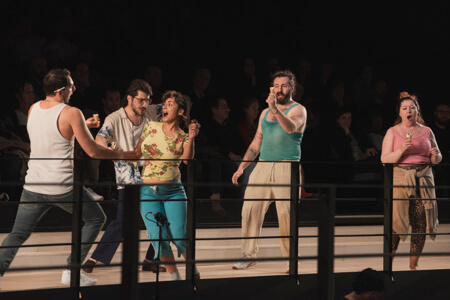On 5 April 2000 the renowned conductor Julius Rudel, a longtime champion of the music of Kurt Weill, was presented with the Kurt Weill Foundation’s Distinguished Achievement Award. Foundation President Kim H. Kowalke recognized Maestro Rudel at the end of the performance of Weill’s Der Jasager, which Rudel conducted at New York City’s Japan Society.
For twenty-two years the General Director of New York City Opera, Maestro Rudel has also served as Musical Director of the Kennedy Center, the Cincinnati May Festival, the Caramoor Festival, and the Buffalo Philharmonic. Having conducted more than 150 different operas in every major venue in the world, Rudel has no rival in breadth and depth of repertory.
Maestro Rudel has been responsible for introducing many of Kurt Weill’s works to American audiences. In the late 1950s he included both Street Scene and Lost in the Stars in the repertory of New York City Opera at City Center; in 1965 he conducted The Threepenny Opera there, in German, with Kurt Kasznar, Martha Schlamme and George S. Irving in the cast. In 1980 a new adaptation of Der Silbersee served as his farewell to New York City Opera and was recorded by Nonesuch.
In May 1999 Maestro Rudel launched the American celebration of Weill’s centenary when he conducted the U.S. premiere of Die Bürgschaft at Spoleto Festival USA. This spring the recording of that production will be released by EMI Classics, the premiere recording of the opera. Rudel has also recorded Lost in the Stars, Weill’s Second Symphony, Concerto for Violin and Wind Instruments, and Kleine Dreigroschenmusik. In addition to his worldwide conducting activities, Rudel serves on the Board of the Kurt Weill Foundation, which he joined at the personal request of Lotte Lenya.
The first Distinguished Achievement Award was presented by the Kurt Weill Foundation in 1990 to Maurice Abravanel, Weill’s musical director of choice during his lifetime. It has been presented only three times in the subsequent years: in 1996 to David Drew, whose contributions as editor, producer, and scholar helped lead to a worldwide rediscovery of the breadth of Weill’s works; to acclaimed soprano Teresa Stratas, for her unforgettable Weill performances; and to Lys Symonette, Weill’s musical assistant during his lifetime and indefatigable champion thereafter (both 1998).


